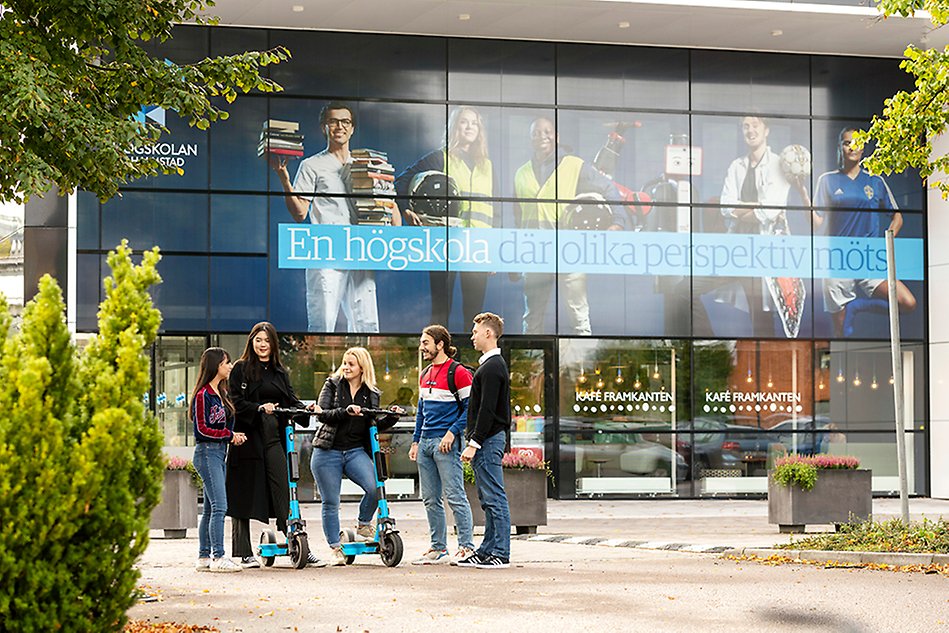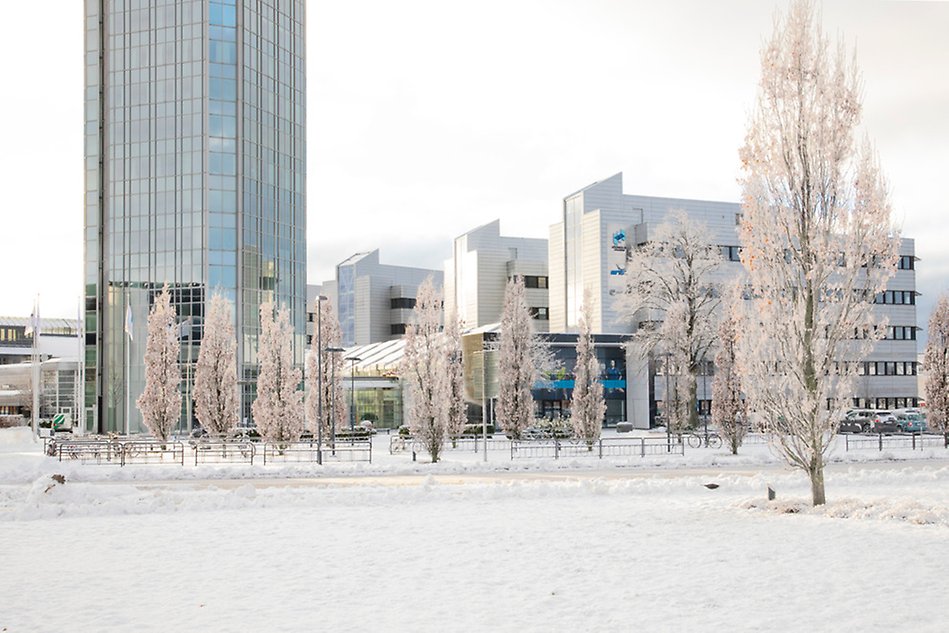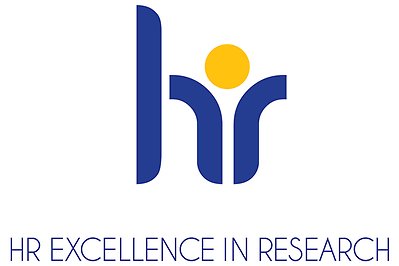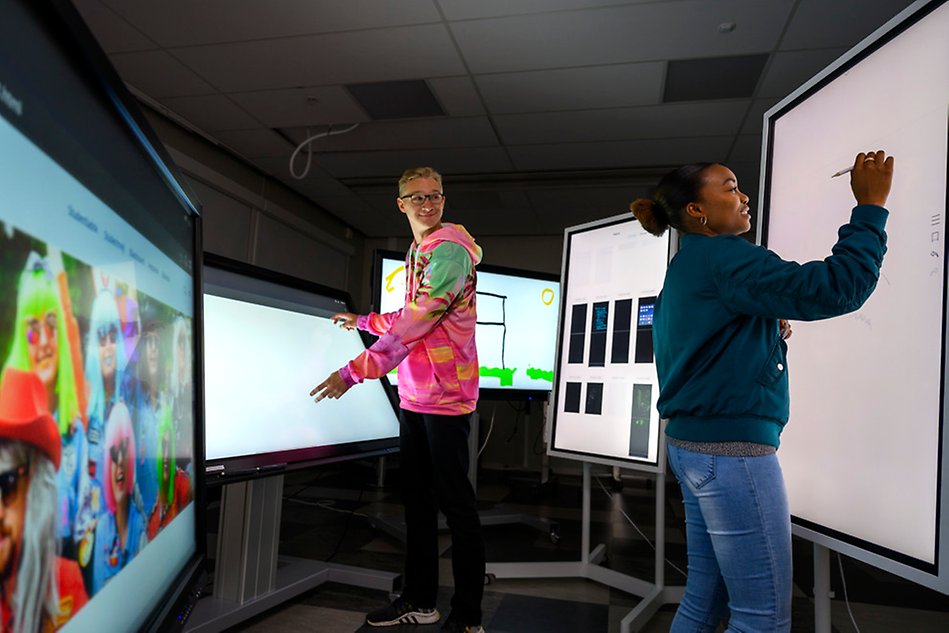Marie-Skłodowska Curie Postdoctoral Fellowship at Halmstad University
Halmstad University welcome researchers who are interested in joining us as a Marie Curie Postdoctoral Fellow!
The Marie-Skłodowska Curie Postdoctoral Fellowship (MSCA-PF) is a post-doctoral research and training programme in which the post-doc (fellow) gains additional skills and abilities working on a specific research project in a new environment, while also transferring their knowledge within their new institution. Open to all fields of research, the fellowship is a well-defined, 2-year-career stage.
In addition to carrying out the research project, the fellow will participate in training and career development activities, which are an integral part of the program, and he/she can include secondments at other researcher facilities, companies, or public sector organizations.
The proposal writing process is a joint undertaking by the applicant and the supervisor/the host organization. If your MSCA-PF project with Halmstad University is granted, you are expected to move to Sweden and work at the premises of our University.
If you intend to apply for the postdoctoral fellowship program and if you have identified either a research group that you want to become part of or an individual researcher you would like to apply with, please get in contact with Meike Froitzheim to ensure that you take advantage of the support services offered at the University to help you prepare a successful proposal.
Contact: meike.froitzheim@hh.se

Who can apply?
Formal requirements
At the date of the call deadline (11 September 2024), supported fellows:
- must be postdoctoral researchers at the date of the call deadline, i.e., in a possession of a doctoral degree, defined as a successfully defended doctoral thesis, even if the doctoral degree has yet to be awarded, and
- must have a maximum of 8 years full-time equivalent experience in research, measured from the date of award of the doctoral degree. Years of experience outside research and career breaks (e.g., due to parental leave) can be deducted. If you are a citizen or long-term resident in an EU or associated country, then time spent outside Europe can also be deducted. However, all extensions need to be documented and will be checked by the European Commission.
Mobility
- between 10 September 2021 and 11 September 2024, you have not been living or carried out your main activity (work, studies, etc.) in Sweden for more than 12 months (for the European Postdoctoral Fellowship) or at the host organization for the outgoing phase (for Global Postdoctoral Fellowships)
Nationality
Supported researchers can be of any nationality. However, researchers going to a third country (‘Global Postdoctoral Fellowship) or researchers who wish to reintegrate to Europe, must be nationals or long-term residents of EU Member States or Horizon Europe Associated Countries.
Calculate your eligibility through the Enspire Science MSCA-PF Eligibility calculator  External link.
External link.
These formal requirements are strictly applied by the EU Commission. Please get in contact with Meike Froitzheim or the research support team at Halmstad University if you have questions about your eligibility.
Your profile
In addition to the formal eligibility requirements, it is also important that you meet several/most of the following requirements:
You should:
- have a good publication track record
- have presented at well-established seminars, conferences in your research field
- have been involved in the organization of workshops/seminars/conferences
- have been a member of a review panel or editorial board
- hold academic/professional membership
- have won prizes or other awards for research and/or other related achievements
- have experience in leadership, teaching and/or supervision
- have been involved in public engagement knowledge transfer activities
- hold mobility/international experience

Why apply for a MSCA-PF at Halmstad University?
Halmstad University is a university where different perspectives meet! Our vision is to add value, drive innovation and prepare people and society for the future.
Since the beginning in 1983, innovation and collaboration with society have characterised the University's education and research. The research is profiled, of high quality, internationally reputable and mainly conducted in a multidisciplinary manner within the University's two focus areas: Health Innovation and Smart Cities and Communities. The University has a wide range of education with many popular study programmes and it is well-known for its vibrant campus culture.

Advantages of applying for a MSCA-PF at Halmstad University
- Halmstad University offers modern, innovative, and well-equipped environments for education, research, and collaboration.
- In 2020, we were granted the HR Excellence in Research Award (HRS4R).
- During proposal preparation, the research support group you support you by offering guidance documents, personalized feedback, and in-depth proposal checks.
- The University offers:
- flexible working hours (based on core hours).
- Swedish language training for staff.
- Wellness allowance: wellness related activities are reimbursed up to maximum SEK 1500 per calendar year.
- In 2019/2020, Halmstad was elected as the Swedish student city of the year.
- Halmstad and the province of Halland offers you an idyllic mixture of sandy beaches and lush forests, a rich foodie culture and a wealth of outdoor activities.

Where will you work?
The following research environments and individual researchers at Halmstad University are interested in your expression of interest to join Halmstad University as a MSCA-PF:
School of Education, Humanities and Social Sciences
The School of Education, Humanities and Social Sciences (Akademin för lärande, humaniora och samhälle; LHS) has two departments with around 90 employees. The School educates teachers, linguists, cultural theorists and social scientists, conducts research and collaboration, and works to develop regional, national and international collaborations within learning, the humanities and society.
Research is conducted within educational science, humanities and social sciences, and proposals should fit broadly within the disciplines of educational sciences, political science, public administration, criminology, cultural studies, and history. Research proposals that incorporate aspects related to digitalization and local/regional governance are especially welcome.
More information about the School of Education, Humanities and Social Sciences
Research at the School of Education, Humanities and Social Sciences
The School of Education, Humanities and Social Sciences develops sustainable models for collaboration with the surrounding society, for example through prominent elements of work-based research within the three research areas digitisation, learning and social change. The areas are also linked to the global goals of Agenda 2030, which focus on sustainability, equality and justice.
Learning in the digital society, responsibility and democracy, European border policy, storytelling, names and identity are examples of themes within the research. The research is practice-oriented and is often conducted in collaboration with other actors in society. LHS’s research asks critical questions, challenges established ways of thinking, is driven by curiosity and has the potential to contribute to innovative solutions to society’s challenges.
Collaboration and innovative environments
The School works to develop regional, national and international collaborations within learning, the humanities and society Collaborations with preschools, schools and education is organised by the Collaboration for learning and development (SamLär). Teacher training internships and other course-related internships provide an additional vital arena. The School is home to the Digital Laboratory Centre (DLC), a creative, high-tech laboratory environment with a focus on teaching, culture, communication and creativity.
For exchange possibilities, the School of Education, Humanities and Social Sciences has agreements with over 70 partner institutions all over the world.
Research focus on CITIZENSHIP EDUCATION
We are looking for one or more candidate(s) having a specific interest in young citizens political participation in relation to sustainability. The candidate will work with an interdisciplinary team consisting of Prof Claes Malmberg (science education), Dr Anders Urbas (political science) and Dr Mikael Thelin (human geography) and be connected to their research on students’ political participation and sustainability education. In addition to the applicant’s merits, we will prioritize according to closeness of fit with the mentoring team.
If you are interested in developing such a proposal with us, email your CV and a one-page outline of your research idea as early as possible and latest by 2 June, 2024. Questions and applications should be sent to the Claes Malmberg at claes.malmberg@hh.se
For more information, see the expression of interest call on EURAXESS External link.
External link.
Research focus on PUBLIC ADMINISTRATION AND LOCAL AND REGIONAL GOVERNANCE
We are looking for one or more candidate(s) being interested in a topic that falls broadly within the public administration and local and regional governance. Specific interest in cross-border regional governance and borderlands studies would be an advantage. The candidate will work with Dr. Sara Svensson and it is considered a merit if research falls broadly within the scope of the the project “B-shapes: Borders shaping
perceptions of European Societies” (project ID 101095186). In addition to the applicant’s merits, we will prioritize according to closeness of fit with the mentoring team.
If you are interested in developing such a proposal with us, email your CV and an one-page outline of your research idea as early as possible and latest by 2 June, 2023. Questions and applications should be sent to the Sara Svensson at sara.svensson@hh.se
For more information, see the expression of interest call on EURAXESS External link.
External link.
Research group on Disinformation and Conspiracy Theories (RE-DACT), Halmstad University, Sweden
The research group “RE-DACT – Research on Disinformation and Conspiracy Theories” invites one or several candidates holding doctoral degrees to develop a collaborative MSCA European Postdoctoral Fellowship application.
About RE-DACT: Disinformation and conspiracy theories are in no way new phenomena but the development of the internet and social media in recent decades has resulted in an exponential rise in the exposure to, and spreading of, disinformation and conspiracy theories. At an individual level, these phenomena may influence health related decisions (e.g., not accepting a certain medical treatment) as well as environmentally behaviours (such as not believing in reports of climate change) and therefore not reducing actions that may negatively affect climate and environment. On a societal level, disinformation and conspiracy theories are related to, for instance, decreasing trust in politicians, mainstream media, social institutions, pharmaceutical companies and health care, and decreasing probability of participation in democratic processes (such as voting). The increased spreading of and exposure to disinformation, alternative truths and conspiracy theories constitute a vast global societal challenge. RE-DACT has been created with the purpose of developing and conducting interdisciplinary research within this field, and to also offer education to organisations on the topic of disinformation and conspiracy theories.
More information about RE-DACT
The selected candidate(s) will together with a researcher and mentor from the research group develop a joint project proposal on the topic of disinformation and/or conspiracy theories within the disciplines of psychology, political science, information technology or media and communication science.
Potential supervisors
Linus Andersson, Senior Lecturer
Urban Bilstrup, Senior Lecturer
Torbjörn Josefsson, Senior Lecturer
School of Information Technology (ITE)
The School of Information Technology (ITE) offers education on all levels, from undergraduate to PhD education, as well as education for professionals. Research is conducted within aware intelligent systems, smart electronic systems, cyber physical systems and digital service innovation. ITE is a multicultural school with around 130 employees from 20 different countries.
Research at the School of Information Technology (ITE)
The School of Information Technology (ITE) is the most research-intensive part of Halmstad University (HU). The School of ITE is a “complete academic environment”, which means that research, education, and collaboration with external partners are closely linked. The school is organized into two departments: The Department of Intelligent Systems and Digital Design (ISDD) and the Department for Computing and Electronics for Real-time and Embedded Systems (CERES). The research is organized into four technology areas: Aware Intelligent Systems, Digital Service Innovation, Systems of Cyber Physical Systems, and Smart Electronic Systems. The first two are core areas within the ISDD department, the latter two are core areas within the CERES department.
It is the ISDD department that will be the host of the proposed project, and has currently 85 staff members, wherein approximately 59 are active in the AI area. The focus of AI has been lately focused on two main application areas: healthcare and mobility, aka information-driven care (IDC) and predictive maintenance. Information Driven Care (IDC) is now a research program funded by Halmstad University and hosts several research projects within this area of research.
More information about the School of Information Technology (ITE)
Research focus on Information Driven Care (IDC)
The availability of data related to the patient journey is changing rapidly in healthcare. Information-driven care will make use of all this data, together with data analytics and machine learning, to improve the healthcare system. There are still challenges to address, from pure machine learning challenges to the transformation into an information-driven healthcare system.
We are looking for one or more candidate(s) a topic that falls under Information-driven care, as follows (but not limited to):
- representation learning
- eXplainable AI (XAI) and other topics related to Trustworthy AI
- large scale data analytics (eg. federated learning)
- machine learning using multi-modal longitudinal data (e.g., patient trajectories)
- privacy preserving data mining and machine learning
- graph-based techniques and graph neural networks (GNN)
- NLP and large language models (LLM)
This position will be associated with the Information-driven care research program (https://www.hh.se/english/research/research-programmes/idc---information-driven-care.htm) and the CAISR Health research profile (https://www.hh.se/caisr-health/caisr-health.html ) and the candidate(s) qwill be working with Dr. Mattias Ohlsson and Dr. Farzaneh Etminani.
If you are interested in developing such a proposal with us, email your CV and a one-page outline of your research idea as early as possible and latest by 2 June, 2024. Questions and applications should be sent to the Mattias Ohlsson and/or Farzaneh Etminani (mattias.ohlsson@hh.se, farzaneh.etminani@hh.se).
For more information, see the expression of interest call at EURAXESS  External link.
External link.
Research at the Center for Applied Intelligent Systems Research (CAISR)
Dive into cutting-edge AI/ML research with our international team to deliver studies with high impact both scientifically and practically. CAISR has over a decade of experience using AI/ML for predictive maintenance, an exciting and challenging application area. Predictive maintenance is about estimating when a system should be maintained to achieve an optimal tradeoff between repair costs and uptime. Machine learning techniques allow for taking into account the early symptoms of problems but also varying usage patterns and long-term effects of external conditions.
Yet, exploring ML for knowledge creation from real data requires dealing with all the real-world uncertainties, missing or strange values, and ambiguities. Thus, CAISR researchers are continuously expanding state-of-the-art in areas such as transfer or multi-task learning; contextual anomaly detection with the Wisdom of the Contexts approach; multi-class classification concept of decision boundary heterogeneity; synthetic data generator blending ML and traffic simulation.
Join us in our quest to push the boundaries of AI, showcased through numerous publications in prestigious venues. We're setting new standards in quality and innovation, shaping the future of AI one research breakthrough at a time!
We are looking for topics in cutting-edge AI/ML topics, including (but not limited to):
- Meta-learning
- Transfer Learning
- Multi-task Learning
- Representation learning
- Self-supervised and weakly-supervised machine learning
- Anomaly Detection
- Synthetic data generation
- eXplainable AI (XAI)
- Graph Neural Networks (GNN)
- Learning from data streams
This position will be associated with our intelligent vehicles & predictive maintenance project portfolio and involves collaboration with Professors Thorsteinn Rögnvaldsson and Slawomir Nowaczyk. If you are interested in developing such a proposal with us, email your CV and a one-page outline of your research idea as early as possible (by 2 June, 2024 at the latest). Questions and applications should be sent to Thorsteinn Rögnvaldsson and/or Slawomir Nowaczyk (thorsteinn.rognvaldsson@hh.se, Slawomir.Nowaczyk@hh.se)
More information about the Center for Applied Intelligent Systems Research (CAISR) External link.
External link.
For more information, see the expression of interest call at EURAXESS External link.
External link.
Research on advanced semiconductor technology and nanoscience
Are you interested in researching a topic that falls broadly within advanced semiconductor technology and nanoscience?
The candidate(s) will work in the research group of Prof. Håkan Pettersson at ITE. The group is affiliated partner in Sweden´s leading nanoscience research center NanoLund at Lund University (https://www.nano.lu.se/start External link.).
External link.).
Suitable topics related to the on-going research projects in the group could be, but are not necessarily limited to:
- Novel electronic materials
- Optoelectronics
- High-speed electronics
- Clean-tech applications
- Energy storage
If you are interested in developing such a proposal with us, email your CV and a one-page outline of your research idea as early as possible and latest by 2 June, 2024. Questions and applications should be sent directly to Prof. Pettersson at hakan.pettersson@hh.se.
For more information, see the expression of interest call at EURAXESS External link.
External link.
Contact
-
The research support team at Halmstad University

